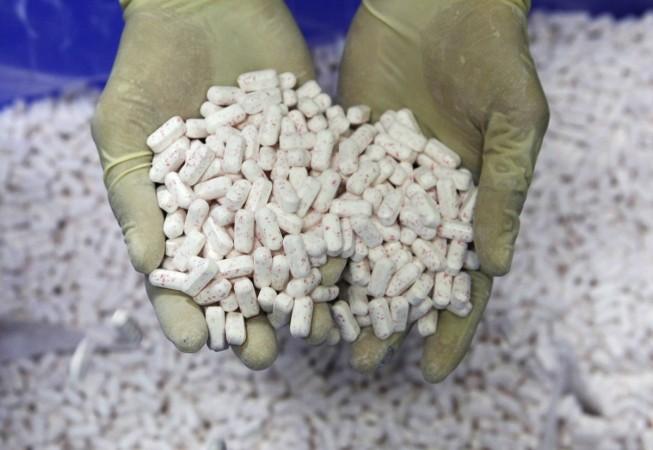
The Indian government on Monday granted a patent to a blockbuster Hepatitis C drug manufactured by U.S.-based Gilead Pharmasset. Gilead has priced the medicine at $1,000 per pill in U.S. The government move has however worried Indian pharma companies and health groups, who believe the grant of the patent would restrict access to cheaper, generic versions of the drug in India and other countries, according to the Times of India.
The U.S. Food and Drug Administration (USFDA) had in January announced priority review of Gilead's drug and assigned it a breakthrough therapy designation, which is granted to investigational medicines that may offer major advances in treatment over existing options.
The health activist groups are reportedly in favour of India's existing patent laws (Indian Patent Act, or IPA), which deny pharma companies patent protection for drugs or products whose patents are about to expire.
The IPA thus makes it difficult for multinational pharma companies to seek patents in India (evergreen patenting) for newer versions of drugs, especially when their cheaper generic versions are available.
However, the latest decision by the Indian Patent Office has proved to be a setback for indigenous pharma firms as well as patients, according to the Times of India.
They had opposed the grant of patent to Gilead's hepatitis drug earlier on the grounds that the drug was old science and did not meet the necessary patent standards in India.
Gilead's drug is one of the most expensive medicines at $1,000 per pill ($84,000 for a 12-week treatment) in the U.S., and has been priced at similar rates in developed countries.
In India, due to the availability of cheaper hepatitis drugs, the drug will not be priced too high, and the generic versions of the drug are available at $335 for a 12-week course, as Gilead had already entered into a licensing agreement with various Indian pharma firms.
However, experts were quoted by the TOI as saying that the move would hit those Indian pharma companies that were planning to manufacture the cheaper version of the drug independently. It could also affect the supply of raw materials to developing countries for the launch of the Hepatitis C drug.
International humanitarian organisation Medecins Sans Frontieres (MSF), which had earlier warned India against grant of patents to U.S. pharma firms, also criticised the Indian government's decision.
"It will also impact those domestic companies which were planning to enter the market independently to supply not just patients in India but also high-burden middle income countries that were not covered by the voluntary license," Leena Menghaney, lawyer and manager of MSF's Access Campaign in India was quoted by the TOI as saying.
The U.S. pharma firm had applied for the patent in 2015, which was rejected by the Indian Patent Office. But the application was approved this time. "I find claimed compounds are novel, inventive and patentable under Patents Act. Accordingly, the instant application is allowed to proceed for grant with finally amended claims 1 to 8 as filed on 29th April, 2016 by the applicant", the TOI quoted the Indian Patent Controller as saying.
India is the world's largest producer of generic medicines. Nearly two-thirds of the medicines supplied under various international aid programmes to developing countries come from India.









